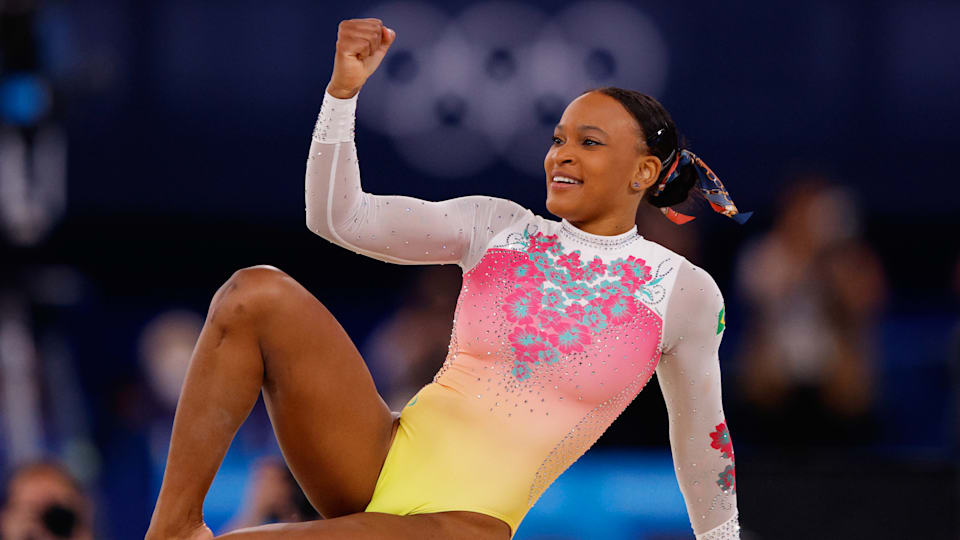
With the Tokyo 2020 Olympic Games just a little more than two months past, the 2021 World Artistic Gymnastics Championships in Kitakyushu, Japan, once again provides a stage for the world’s best in the sport.
In artistic gymnastics, a world championship in the year of the Olympic Games hasn’t happened since 1996. But those championships happened before the Games of Atlanta 1996.
With stars of the sport – and reigning world all-around champions – Simone Biles and Nikita Nagornyy not taking part, new all-around champions will be crowned. Only three athletes – Carlos Yulo, Ibrahim Colak and Arthur Nory – come to Kitakyushu with a chance to defend their world titles from 2019.
But that doesn’t mean there won’t be excitement, as the field includes eight Olympic gold medallists including Japan’s Kohei Uchimura for whom this event may be his finale.
Here’s what to look for, from the schedule to stars to watch, in Kitakyushu.
2021 World Arstic Gymnastics Championships Schedule
All times local to Kitakyushu (UTC+9)
Monday, 18 October
- 9:45am, Women's qualifying, Subdivision 1 featuring athletes from China, Turkey, Israel, Uzbekistan
- 11:15am, Women's qualifying, Subdivision 2 featuring athletes from Great Britain, Italy, Netherlands, Hungary
- 1pm, Women's qualifying, Subdivision 3 featuring athletes from USA, Canada, Norway, Croatia
- 2:30pm, Women's qualifying, Subdivision 4 featuring athletes from Switzerland, Portugal, Colombia, Iceland, Lithuania
- 4pm, Women's qualifying, Subdivision 5 featuring athletes from Japan, Ukraine, Taiwan, Denmark, Luxembourg
- 5:45pm, Women's qualifying, Subdivision 6 featuring athletes from Germany, Egypt, Austria, Finland, Ecuador
- 7:15pm, Women's qualifying, Subdivision 7 featuring athletes from France, Romania, Sweden, India
Tuesday, 19 October
- 9:45am, Women's qualifying, Subdivision 8 featuring athletes from Czech Republic, Azerbaijan, Slovenia, Hong Kong, Vietnam, Latvia
- 11:15am, Women's qualifying, Subdivision 9 featuring athletes from Brazil, Mexico, Ireland
- 1pm, Women's qualifying, Subdivision 10 featuring athletes from Russia, South Korea, Slovakia
- 5pm, Men's qualifying, Subdivision 1 featuring athletes from Germany, Spain, France, Greece, Bulgaria, Portugal
- 7:10pm, Men's qualifying, Subdivision 2 featuring athletes from Russia, China, Ukraine, Hungary, Belgium, Slovenia, Hong Kong, Latvia
Wednesday, 20 October
- 9:20am, Men's qualifying, Subdivision 3 featuring athletes from Japan, Brazil, Switzerland, Armenia, Azerbaijan, Panama, Bangladesh
- 11:10am, Men's qualifying, Subdivision 4 featuring athletes from USA, Taiwan, Netherlands, Lithuania, Belarus, Iceland, Syria
- 1:20pm, Men's qualifying, Subdivision 5 featuring athletes from Egypt, Kazakhstan, Mexico, Colombia, Thailand, Romania
- 3:10pm, Men's qualifying, Subdivision 6 featuring athletes from Great Britain, Turkey, South Korea, Canada, Vietnam, Ecuador, Ireland, Albania
- 5:20pm, Men's qualifying, Subdivision 7 featuring athletes from Italy, Croatia, Uzbekistan, Czech Republic, Finland, Denmark, Philippines
- 7:10pm, Men's qualifying, Subdivision 8 featuring athletes from Israel, Cyprus, Austria, Norway, India
Thursday, 21 October
- 6pm, Women’s all-around final
Friday, 22 October
- 6pm, Men’s all-around final
Saturday, 23 October
- 4:10pm, Apparatus finals, day 1
Sunday, 24 October
- 4:25pm, Apparatus finals, day 2
Stars to watch
Three Olympic champions highlight the field in the women’s competition: Brazil’s Rebeca Andrade and the Russian Gymnastic Federation’s Angelina Melnikova and Vladislava Urazova. After finishing with bronze at Tokyo 2020 in the all-around, Melnikova, who was also third at the lat worlds, will be the favourite for gold in Kitakyushu. Tokyo gold medallist Suni Lee of the United States is currently on a break from elite competition and Andrade, the silver medal winner, announced she will only compete in three of the four apparatus.
Melnikova’s fellow Tokyo Olympic team gold medallist Urazova, who finished fourth in the all-around at this summer’s Olympics, could push for the all-around podium, as well, if she decides to compete on all of the apparatus. Urazova also finished eighth in the balance beam final in Tokyo and could challenge on the event here.
Other all-around contenders include Kayla DiCello and Leanne Wong of the United States and China’s Li Shija. 2018 world all-around silver medallist Murakami Mai of Japan only trained on balance beam and floor exercise in Friday's (15 October) official practice and is not expected in the all-around.
In the apparatus finals, Andrade, the Olympic gold medallist on vault, will be the favourite for gold once again. Great Britain’s Becky Downie, a 2008 and 2016 Olympian, enters the event as the reigning world uneven bars silver medallist. The 29-year-old will be looking for redemption after missing out on the Olympic Games earlier this summer.
On balance beam, Wei Xuoyuan and Li could replicate the 1-2 finish on the apparatus China produced earlier this summer at the Olympic Games. American newcomer Konnor McClain has the potential to contend, as well, but will need to handle her nerves under pressure.
The women’s floor final should be a battle Tokyo bronze medallists Melnikova and Murakami.
As for Uchimura, Kitakyushu could be the two-time Olympic all-around champion’s swan song. The Japanese great won six-straight world all-around titles (2009, 2010, 2011, 2013, 2014, 2015) and Olympic titles at London 2012 and Rio 2016.
But in his post-Rio career, injuries have slowed him down. He considered retirement, but returned to the sport, focusing only on the horizontal bar for Tokyo 2020. Uchimura looked to be the favourite for gold on the apparatus, but he slipped off the bar on a pirouetting element in the qualifying round and missed the final. He will want to go out on a high note here.
He’ll be joined by the man who continued the legacy of Japanese success in men’s gymnastics at Tokyo 2020: Hashimoto Daiki. Hashimoto won all-around and horizontal bar gold at the Olympics.
Others to watch include Yulo, Colak and Nory, the reigning world champions on the floor exercise, still rings and high bar, respectively. 2020 Olympic vault champion Shin Jea-hwan and 2012 Olympic vaulting champion Yang Hakseon both of South Korea are the other two Olympic gold medallists in the field.
